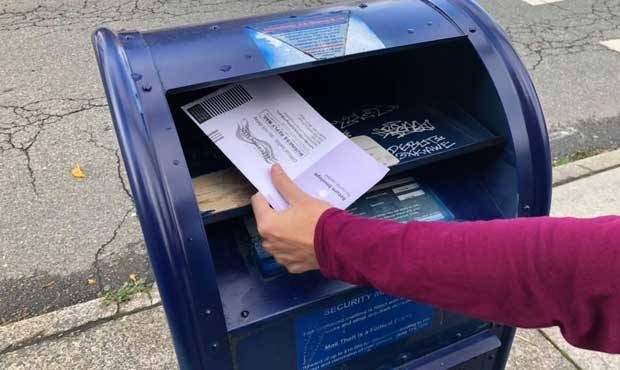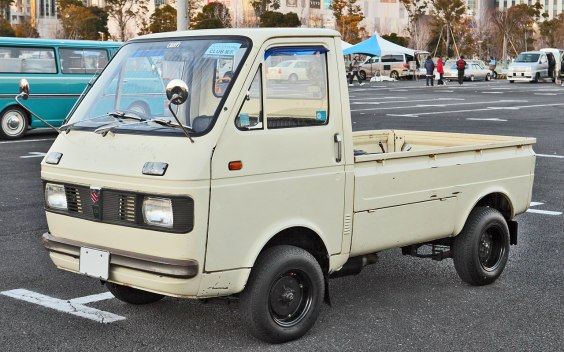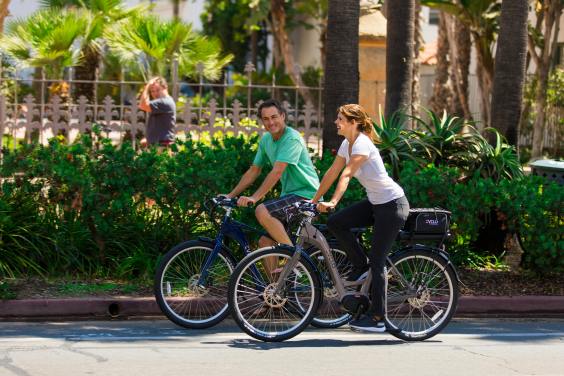These days, California rarely has definitive election results right after Election Day. Today is no exception. The Streetsblog team has a wrap up of some statewide and local results in yesterday's election. Note that ballots are still being counted so these may change.
Statewide Propositions
Prop 15 is trailing. Early returns were not kind to Proposition 15, the ballot measure that would reform the (in)famous Proposition 13 that froze property tax rates on residential and commercial properties until properties are resold. If it passes, it would allow commercial properties valued at over $3 million to be re-assessed, and would produce funding for local governments and schools. Education and transit advocates had anticipated billions in additional property tax revenue to support flagging schools and transit, but they were no match for large real estate interest spending to defeat the measure.
As votes come in, Proposition 15 creeps closer to passage, and proponents note that State Superintendent of Schools Tony Thurmond saw an eight-point swing between early votes and his election two years ago. However, with 72 percent of votes reporting, Prop 15 still trails by over a quarter of a million votes.
Prop 16 has lost - currently with 43.9 percent approval. The proposition would have repealed California’s 1996 Prop 209 ban on affirmative action. In an era when people are grappling with racial inequities, it's too bad the old arguments about being a "color blind" society still hold sway against clear evidence that racial injustice is the rule if laws don't specifically prohibit it.
Prop 21 has lost - currently with 40.2 percent approval. For the second time in recent years, California voters again rejected an attempt to update and expand rent control, even though this bill included protections for small landlords.
Prop 22 has passed - currently with 58.4 approval. Heavily invested in by Uber, Lyft, and DoorDash, the initiative rewrites California labor law to exempt these companies' drivers from state law that defines them as employees. Instead they will be defined as independent contractors, without the guarantee of a minimum wage or other employment benefits. It also will allow the companies to continue to benefit from the time drivers aren't actively engaged in giving a ride - by not paying for that time. This takes away an incentive companies would have had to reduce extra driving and emissions.
Prop 22 was a response to A.B. 5, which tried to rein in abuses by companies who rely on contract labor. A.B. 5 protected gig workers and pointedly included Uber and Lyft, who insisted, despite several court rulings against them, that they were exempt from the law. Prop 22 also came with a poison pill: the law cannot be amended in the state legislature without an unprecedented 7/8 majority vote.
Uber and Lyft's stock prices went up in response, even though these companies have never shown a profit.
Some observers are concerned that Prop 22 could lead to other industries insisting on similar exemptions from A.B. 5, but even more concerning is its national significance. If California voters think that Uber and Lyft drivers don't need employment protections, it's likely that similar measures will be tried in others states.
Local Transit Initiatives
Sonoma County voters have renewed their transportation sales tax measure DD. As a tax measure, it needed to get at 2/3 majority, and is currently hovering at about 71 percent. DD reauthorizes, for twenty years, a quarter-cent sales tax for road repair, traffic reduction, biking and waking paths, bus services, greenhouse gas reductions, evacuation route improvements, and senior and student transportation. Which is all great, but like so many tax measures that want to include something for everyone, it includes projects that both widen and speed up highways, including Highway 16 right through the center of Cotati.
Measure RR in San Mateo and Santa Clara counties, a tax to support Caltrain, also passed. This is also good news - see Streetsblog SF coverage here.
Other Local Stuff
Measure A in San Diego is leaning towards a yes, with 57.4 percent of the votes so far. This measure would allow the city to issue $900 in bonds to fund low-income, substance abuse, and mental health services housing.
The city of Mountain View has passed a local ban on RV parking on most of its residential streets. The city provides some RV parking in lots, but not nearly enough for the hundreds of people living in RVs on city streets.
The Bay Area Rapid Transit Board also held elections for its board, and it looks like the incumbents have all won, including Lateefa Simon in District 7 and Deborah Allen in District 1. John McPartland currently has a slim lead over his biggest challenger, Steven Dunbar, a local transit-dependent transportation advocate and engineer.
McPartland and Allen both faced serious pushback from community members over comments they have made about the "villainization" of law enforcement. McPartland defended the career of Confederate general Robert E. Lee. For her part, Allen shocked listeners and fellow BART board members when she denied that BART police have killed Black people, basing her claim on the legal definition of murder. Both incumbents seem to have weathered the controversies, but it's not clear whether that means their comments reflect widely held attitudes in their suburban districts, or that voters don't pay that much attention, and their incumbency gave them strong name recognition.
More election news is up at Streetsblog LA and Streetsblog SF See also national election round-ups at Streetsblog USA and Streetsblog Mass.
Contributors to this post include Streetsblog team members Melanie Curry, Joshua Shure, Damien Newton, and Joe Linton.





